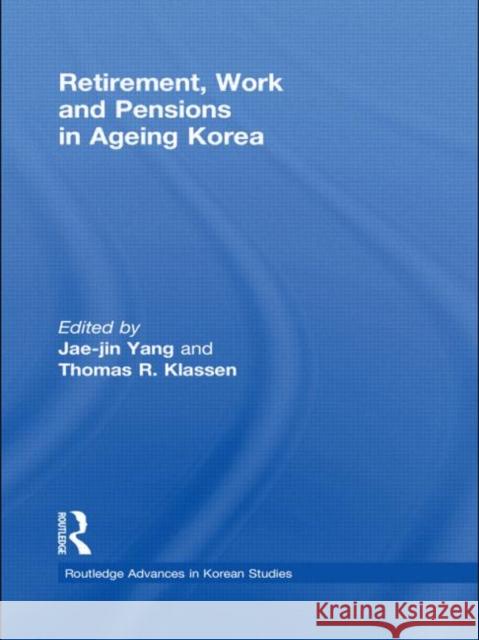Retirement, Work and Pensions in Ageing Korea » książka
Retirement, Work and Pensions in Ageing Korea
ISBN-13: 9780415551724 / Angielski / Twarda / 2010 / 192 str.
As significant as its economic progress, from a dirt poor and devastated nation in the 1960s, is South Korea's emerging welfare state. Although established in a short time, and still immature in some aspects, its unique East-Asian model now faces a population that is ageing at an unprecedented rate.
Even among the four Asian tigers, with their economic miracles during the past several decades that allowed them to join the ranks of the developed nations, South Korea is extraordinary. After all, Singapore and Hong Kong are small city-states, while Taiwan has less than half of the population of South Korea. As significant as its economic progress, from a dirt poor and devastated nation in the 1960s, is South Korea’s emerging welfare state. Although established in a short time, and still immature in some aspects, its unique East-Asian model now faces a population that is ageing at an unprecedented rate. Notwithstanding Korea’s rapid economic rise, it remains relatively little studied especially for Western scholars. This volume seeks to fill some of this gap by analyzing how rapid aging impacts, and will continue to impact in the next several decades, state policies related to work and retirement. After all work, employment in the paid labour force is the central feature of economic growth, while providing for retirement after paid employment is central feature of an advanced welfare state.











